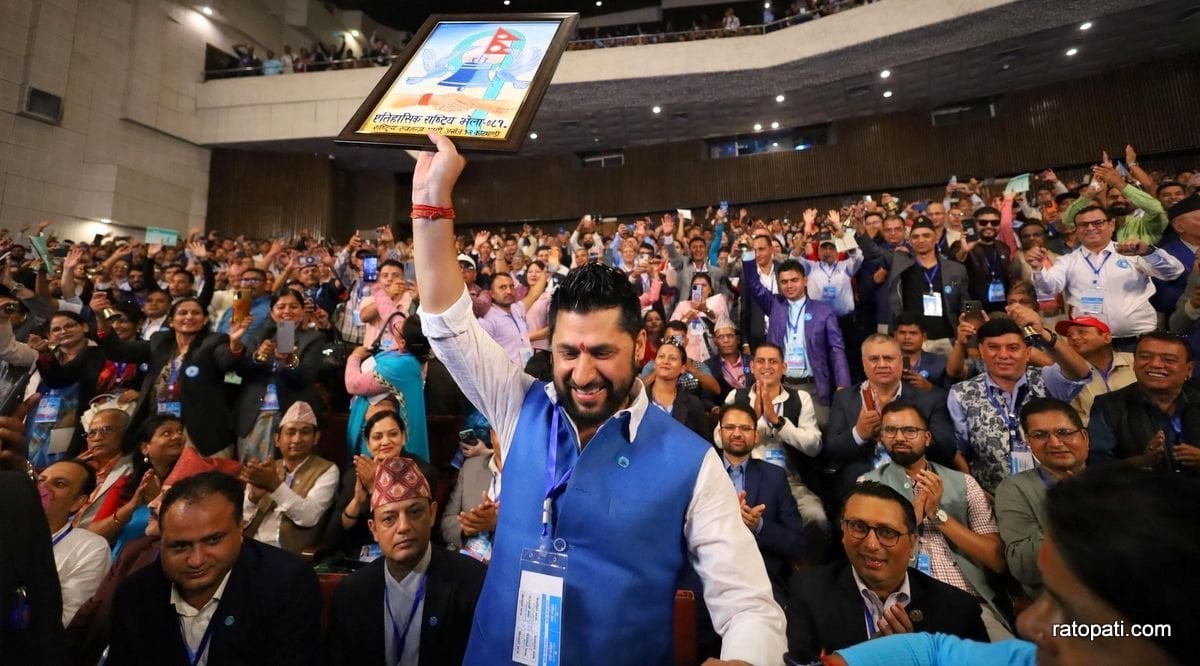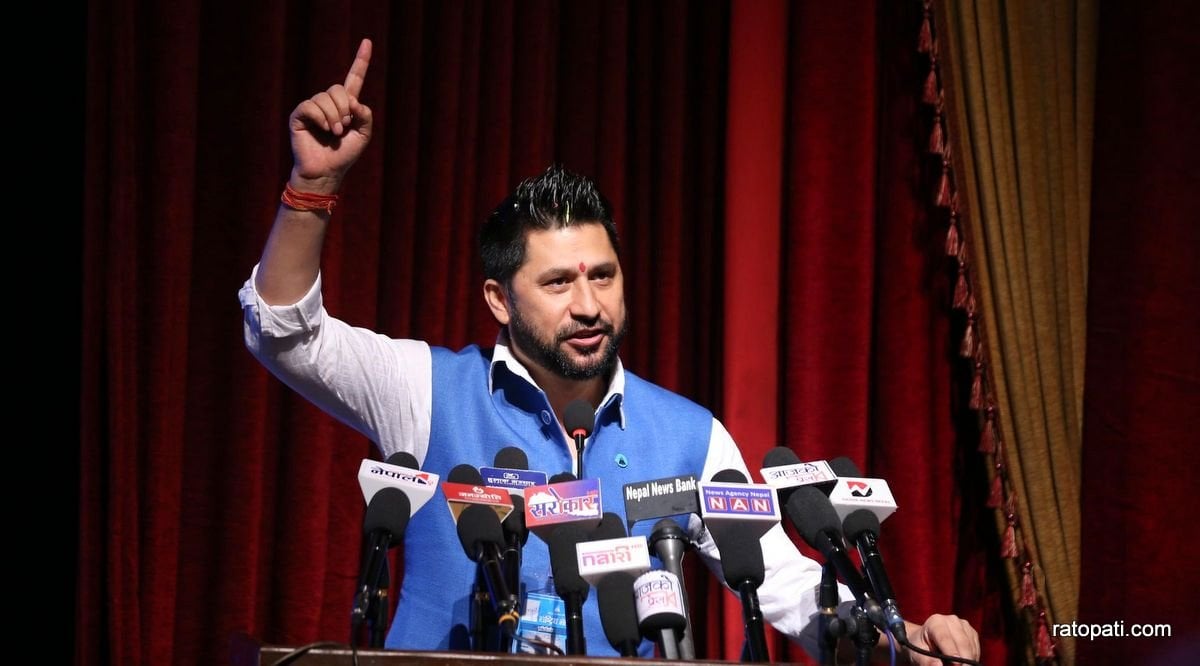Rabi Lamichhane acknowledges weaknesses in political report

Kathmandu, September 20 — The two-day national gathering of the Rastriya Swatantra Party (RSP) held in Kamaladi has concluded. The gathering, which took place on September 17 and 18, announced the date for the party's first general convention. Party President Rabi Lamichhane declared that the current executive committee has been transformed into an organizing committee for the convention.
Rabi presented a 20-page political report at the end of the gathering which revealed some truths that he acknowledged himself.
In the report, Rabi admitted his weaknesses, stating that despite making bold political statements, he had failed to address many personal matters appropriately and in a timely manner. While he claimed that the accusations against him were untrue, he accepted that these issues had harmed the party.
“I regret that my non-political and highly personal issues burdened the entire party unnecessarily,” Rabi wrote in his report.
He recognized that his reckless statements, grand promises made to the public, and the inability to fulfill them have damaged both the party and his political future.
“There may be many weaknesses in me as a person. However, I have not engaged in any unethical, anti-social, or apolitical actions. My weakness lies in not anticipating the brutal and inferior nature of politics,” he confessed in front of nearly two thousand party members.
Despite lacking a political background and experience, Rabi achieved impressive success in a short time running the party. However, continuous accusations have led to a decline in both his and the party’s popularity, which he acknowledged in his report, referring to these as assaults on his character.
In his report, Rabi claimed that they have succeeded in parliamentary politics. Even though public sentiment favored not joining the government and remaining in opposition, he presented evidence of successful actions taken during the five months they were in power.
“Our sports minister's decisions have created history in the sports sector. The education minister's efforts have sparked hope among the youth regarding politics. The labor minister's actions have saved not just millions but billions from the state treasury,” he wrote.
However, he provided a clever response regarding his appointment as home minister. He questioned why a power-hungry person would reject the proposal to become prime minister, stating, “Would a power-hungry person refuse the proposal for the highest executive post in the country?”
Rabi acknowledged the party's failure to build and expand its organizational structure, admitting weaknesses in political training, slow expansion, and lack of defined responsibilities. He noted that the absence of proportional and inclusive representation was a significant issue.
He wrote about the dominance of a centrally-controlled organizational structure and a lack of interaction between leaders and members, which he identified as weaknesses.
Confusion in Party ideology
Rabi noted that people from various backgrounds have joined the party, and there remains a lack of establishment of the “RSP DNA” due to old ideas and perspectives. He also acknowledged that the betrayal by former General Secretary Mukul Dhakal has temporarily worried members, supporters, and well-wishers.

Rabi’s report does not clearly define the party's ideology and direction. He mentioned spending two years discussing how to organize the party but admitted that clarity in structure and form is still lacking.
He expressed uncertainty about whether to create a mass-based or cadre-based party, suggesting a possible fusion of the two approaches. He pointed out the challenges each method would bring to the party's organizational structure.
“I believe it would be appropriate for us to adopt a mixed system,” he proposed.
Rabi indicated that learning will refine the party as it evolves.
Unclear governance structure
Rabi's political report advocates for constitutional amendments to allow for an independent, non-partisan, and respected individual to become president. He stated that the name of the candidate for president from their party would be made public before the elections.
He pointed out a contradiction in mentioning a non-partisan president while still indicating that the party would nominate individuals.
Rabi suggested that the Chair of the National Assembly should become the Vice President, that there should be directly elected Prime Ministers, and that the Prime Minister should be able to select ministers from qualified and knowledgeable Nepali citizens. He proposed transforming the National Assembly into a non-partisan and inclusive “Council of Experts” reflecting national unity.
Rabi’s report supports the dissolution of the provincial assemblies, proposing to maintain the number of provinces at seven while reducing the number of local levels from 753 to below 500.
“Discussions will start on empowering a provincial council consisting of local representatives with legislative authority, while maintaining five provincial ministries, including a directly elected chief minister led by experts, and reducing the number of local municipalities to below 500,” the report stated.
He also noted that the electoral system is costly and called for a fully proportional electoral system. When the party was established on June 21, 2022, many referred to it as a “non-political trend,” a fact Rabi acknowledged in his report.
Another truth he accepted was, “Ilam rang the bell on our heads and said—this is not enough. Work harder, more sharply, and more wisely.” He was referring to the party's failure in Ilam by-election held after the death of former Speaker and UML MP Subhash Nembang.










Leave Comment